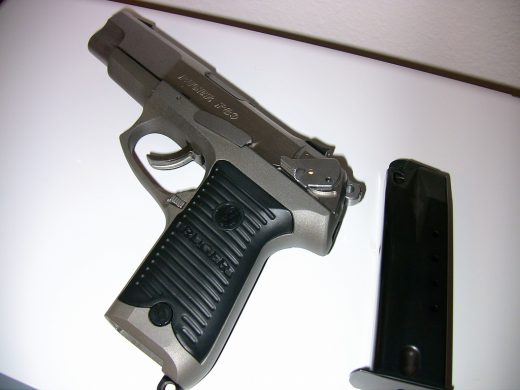By Peter Hall | Pennsylvania Capital-Star
A legislative package aimed at ensuring guns don’t get into the hands of children and criminals and preventing shooting deaths advanced toward votes in the Democratically-controlled state House on Wednesday.
But Republican lawmakers, who have blocked gun safety bills in past sessions, voted unanimously against the measures in the House Judiciary Committee in a preview of the opposition the four bills are likely to face in the GOP-controlled state Senate.
Each of the bills was reported out of committee on 12-9 votes.
The legislation, Republican committee members said, would do little to reduce crime and create legal pitfalls for gun owners.
“We’re discussing a slew of new laws that are going to mainly and almost exclusively affect citizens that are already law-abiding gun owners because, by definition, criminals don’t really follow the law,” Rep. David Rowe, R-Union, said.
CeaseFirePA director Adam Garber said the committee’s approval of the bills made it “a good day for Pennsylvania.”
“The Judiciary Committee gave voice to the vast majority of Pennsylvanians who for years have been crying out for life-saving improvements to our firearm safety laws,” Garber said in a statement. “We will not stop honoring those we’ve already lost and preventing the next death until these bills are on Governor Shapiro’s desk.”
Two of the bills would require gun owners to report lost or stolen guns and securely store rifles and shotguns using a device to keep them from being fired when not in use. Another bill would extend the requirement for background checks to private sales of rifles and shotguns.
The fourth, House Bill 1018, would create a process by which family members or law enforcement could ask a judge to hold a hearing to issue an extreme risk protection order to temporarily disarm someone who is at risk of harming themself or others.
State Rep. Jennifer O’Mara, D-Delaware, told fellow lawmakers on Wednesday that if such a procedure had been available 20 years ago, her father might still be alive.
O’Mara’s father, a career firefighter and Marine Corps veteran, died by suicide using a gun. His family knew that something was wrong, but seeking involuntary mental health treatment would have permanently stripped him of his Second Amendment rights, O’Mara said.
“This legislation isn’t about taking away anyone’s Second Amendment [rights],” she said. “It’s about making sure that one more person doesn’t die by suicide. It’s about making sure that another family doesn’t suffer the same way that mine did.”
Asked whether an extreme risk protection order could be used maliciously to deprive someone of their guns, Judiciary Committee Executive Director Tim Clawges said the bill provides the subject of an application for an order due process including the rights to a hearing, to be represented by an attorney and to appeal or request that an order be lifted. It also includes penalties for making false statements in an application.
Former Judiciary Committee chairperson and the ranking Republican member, Rep. Rob Kauffman of Franklin County, said he believes extreme risk protection order laws are ineffective, unnecessary and unfairly place a burden on the subject of an order.
Kauffman suggested the Mental Health Procedures Act already provides a mechanism to help a person in crisis and noted that while an involuntary mental health commitment once resulted in a permanent prohibition on gun ownership, that is no longer the case.
He also cited a study by the nonpartisan think tank Rand Corp. that he said shows the impact of extreme risk protection laws is “virtually unnoticeable.”
“I appreciate the intent and the anecdotal stories and the heartstrings that are pulled by something like this, but the reality is not beneficial,” he said.
Rep. Malcolm Kenyatta, D-Philadelphia, and Rep. Benjamin Sanchez, D-Montgomery, are the prime co-sponsors of House Bill 338, which would combat straw purchasing in which a person buys a gun to resell to someone who cannot legally purchase one themselves.
It creates penalties for people who do not report lost or stolen guns ranging from a fine for a first offense to the possibility of a prison sentence for repeat offenders. The law would prevent a straw purchaser from claiming a gun had been lost or stolen.
Kenyatta, who represents part of north Philadelphia, said lost and stolen or illegally traded guns are one of the greatest contributors to gun violence in his district. Often, they end up in the hands of teenagers.
“There has to be accountability not just for the person who pulls the trigger, but for the person that puts the gun in a child’s hand in the first place,” Kenyatta said.









